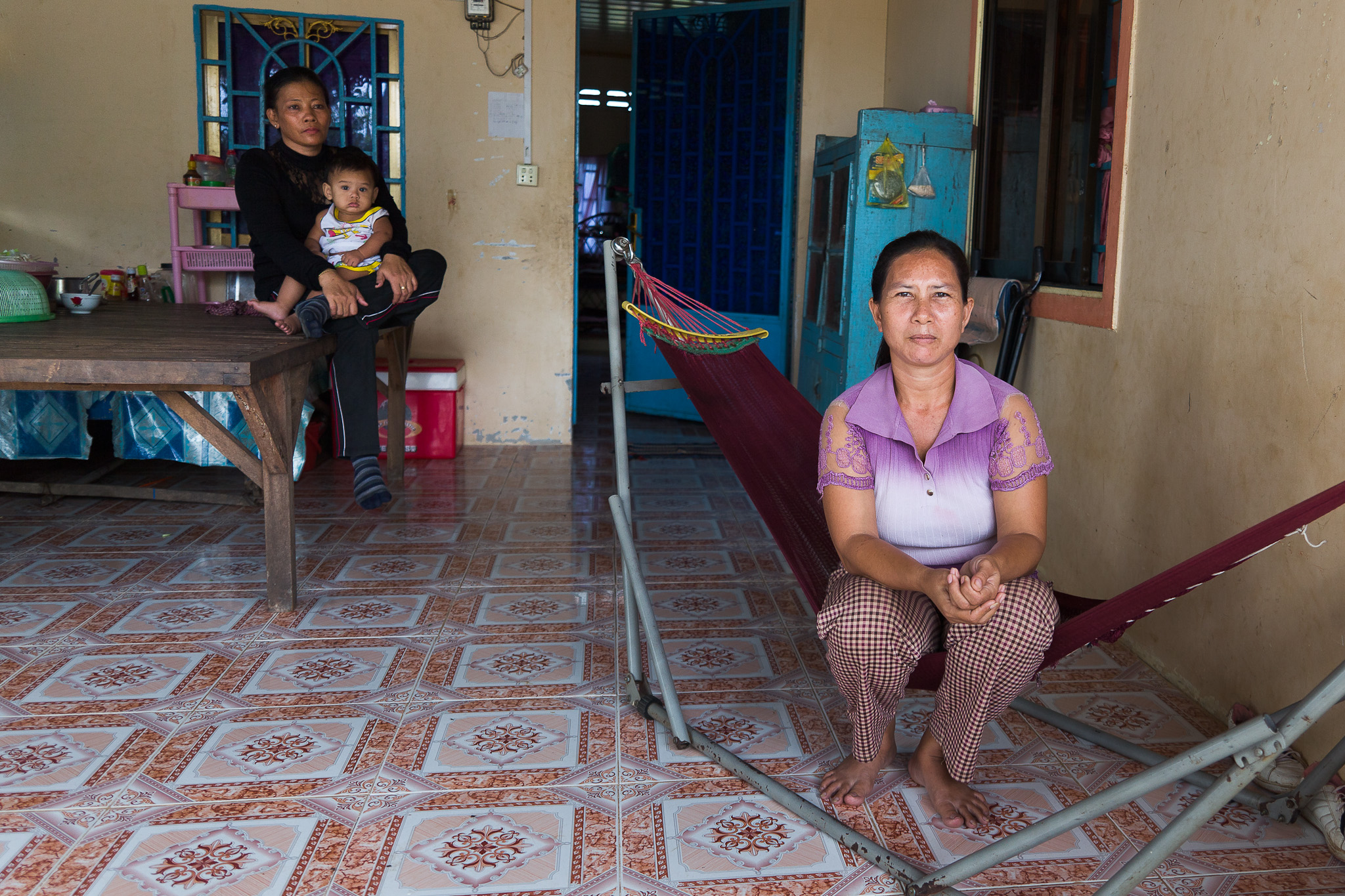

Ary, an IBJ client who borrowed money for property investment, was put in prison for breach of confidence after she went bankrupt. Photo by George Hsia.
By Marcena Winterscheidt
In December of 2007, Ary* borrowed $5,000 from a local middleman to invest in property. The man worked in the front office of the provincial hall, a position of influence and wealth. At the time, the land business was a very good investment. Many people were experiencing a great deal of success buying and selling property. The two parties agreed that Ary would make the first payment of $1,000 in December of 2008. She insured the loan by giving the middleman a land rights letter to her property.
Unfortunately, the economic crisis hit Cambodia soon after and the real estate market collapsed. Ary’s finances were severely impacted and she went bankrupt. When December 2008 came, Ary could only afford to pay the other party $500 of the $1,000 she owed. She tried to renegotiate and delay the contract for one year, but the middleman refused to budge. Ary could not sell her property in time to make the first payment and the other party was demanding more money from her if she did sell. The two parties also disagreed on the value of the home, as Ary thought the home was worth more than what the middleman claimed.
Needing money, Ary created a new land rights letter and gave it to the local bank in exchange for a loan. The man found out about Ary’s new loan and land rights letter. Angry, he went to the prosecutor, and through a combination of personal relationships with court officials and by paying off the court he had Ary arrested. Ary was summoned to the court, where the prosecutor charged her with Breach of Trust under Article 46 of the UNTAC Law (in force in Cambodia until December 2009, when the new Criminal Code was adopted) and had her arrested. When she went to the court, she had no idea she was going to be arrested and was sent straight to prison with no chance to defend herself.
At this time, Article 46 of the UNTAC Law (Provisions relating to the judiciary and criminal law and procedure applicable in Cambodia during the transitional period, 1992) laid out the misdemeanor crime of Breach of Trust:
“Any person who misappropriates or disposes of, against the interest of the owner, possessor or holder; any property, money, merchandise, or document containing or establishing any obligation or release, which was entrusted to that person as rent, deposit, commission, loan or remuneration for paid or unpaid work, having promised to return it or to offer it back or to put it to an agreed upon use, is guilty of breach of trust and shall be liable to a punishment of a term of imprisonment of one to five years.”
The middleman claimed that he had the rights on all of Ary’s property. Thus, since the property was not hers and she had no right to issue a land rights letter on it, she was guilty of Breach of Trust.
Ary remembers that when she first was sent to prison, she was very frightened. It was very hard to be away from her four children, who had to work while she was in prison not only to support the family, but also to pay off Ary’s debt. Her two eldest tried to raise enough money to release her from prison but were not able to. Additionally, it was difficult for Ary’s family to visit her because they had to work and it was difficult for them to pay the 10,000 riel fee to see her.
One month after receiving the case, IBJ lawyer Chhuon Sithann defended Ary at trial. He argued that her actions did not violate any criminal laws. Ary owed the middleman $5,000, but when she issued the second land rights letter to the bank, her land was valued at $10,000. Thus, the value of the property was great enough that Ary did not give away the rights or sell anything that was not rightfully hers. The other party’s $5,000 stake in the land was still safe even after the second letter was issued. Furthermore, if the middleman had wanted to obtain money damages from Ary, he should have brought a civil suit, which carries no detention time and thus means Ary should have never been arrested.
At the conclusion of the trial the court rejected the accusation, agreeing with Sithann’s argument that the land value was high enough for Ary to give out both letters and that she did nothing wrong. The prosecutor took no steps to appeal the ruling and Ary returned to her home. Before working with IBJ, Ary didn’t know about her right to a lawyer—now that she knows, Ary has told all her friends and family about their legal rights. Grateful to IBJ and Sithann for their assistance, she has even given Sithann’s contact information to two families who had loved ones arrested. Ary wants to share her story with others, and said that it “felt good to have someone find justice for her.”
*The name of the IBJ client has been changed.